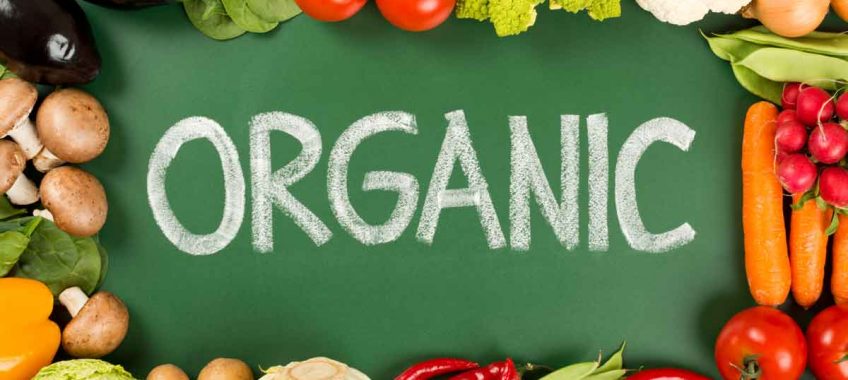09
Sep
Organic food is extremely popular. The sweeping public opinion that organic food is healthier than conventional food is quite strong, and is the main reason for increase in its demand in its demand over the past 5-6 years. Organic Facts is a strong proponent of organic food.
The term “organic” refers to the way agricultural products are grown and processed. While the regulations vary from country to country, in the U.S., organic crops must be grown without the use of synthetic pesticides, bioengineered genes (GMOs), petroleum-based fertilizers, and sewage sludge-based fertilizers. Organic livestock raised for meat, eggs, and dairy products must have access to the outdoors and be given organic feed. They may not be given antibiotics, growth hormones, or any animal by-products.
The Department for Agriculture and Rural Affairs (DEFRA) states that:
‘Organic food is the product of a farming system which avoids the use of man-made fertilisers, pesticides; growth regulators and livestock feed additives. Irradiation and the use of genetically modified organisms (GMOs) or products produced from or by GMOs are generally prohibited by organic legislation. Organic agriculture is a systems approach to production that is working towards environmentally, socially and economically sustainable production. Instead, the agricultural systems rely on crop rotation, animal and plant manures, some hand weeding and biological pest control’.
Organic vs Non-Organic
Organic Produce:
- Grown with natural fertilizers
- Weeds Controlled naturally
- Pests are controlled using natural methods
Organic Dairy, Meat, Eggs
- Livestock are given all organic, hormone and GMO free feed
- Diseases are prevented with natural methods such as house cleaning,healthy diet etc
- Livestock must have the access to out doors
Conventionally Grown Produce
Grown with synthetic or chemical fertilizers
Weeds are controlled with chemical herbicides
Pest are controlled with synthetic pesticides
Conventionally raised dairy, meat, eggs
- Livestocks are given growth hormones for faster growth
- Antibiotics and medications are used to prevent livestock disease.
- Livestock may or may not have access to the outdoors
Organic foods often have more beneficial nutrients, such as antioxidants, than their conventionally-grown counterparts and people with allergies to foods, chemicals, or preservatives often find their symptoms lessen or go away when they eat only organic foods.
Organic food is GMO-free.
Genetically Modified Organisms (GMOs) or genetically engineered (GE) foods are plants whose DNA has been altered in ways that cannot occur in nature or in traditional crossbreeding, most commonly in order to be resistant to pesticides or produce an insecticide.
Organic food is often fresher
Organic food is more fresher, because it doesn’t contain preservatives, So it will be more tastier than conventionally grown produce.
Organic farming is better for the environment.
Organic farming practices are better than conventional farming, It reduce pollution, conserve water, reduce soil erosion, increase soil fertility, reduce soil erosion and use less energy. Farming organically is also good for nearby birds and animals as well as people.
Organic produce contains fewer pesticides and more antioxidants.
Chemicals such as fungicides, herbicides, and insecticides are used in conventional agriculture and its residues remain on (and in) the food. Organic crops have 17% more antioxidants than conventionally grown crops. antioxidants have been linked to a lower risk of cancer and other diseases.
Organically raised animals are NOT given antibiotics, growth hormones, or fed animal byproducts.
Feeding livestock animal byproducts increases the risk of mad cow disease (BSE) and the use of antibiotics can create antibiotic-resistant strains of bacteria. Organically-raised animals are given more space to move around and access to the outdoors, which help to keep them healthy.
Organic meat and milk are richer in certain nutrients.
Results of a 2016 European study show that levels of certain nutrients, including omega-3 fatty acids , were up to 50 percent higher in organic meat and milk than in conventionally raised versions.
, were up to 50 percent higher in organic meat and milk than in conventionally raised versions.
Source: Free Articles from ArticlesFactory.com

